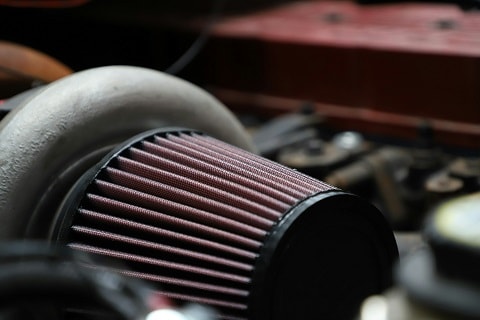
When it comes to maintaining your Hyundai, two filters might sound similar but serve very different purposes: the engine air filter and the cabin air filter. Both play important roles in vehicle performance and comfort, but they protect different systems. Understanding the difference can help you keep your Hyundai running smoothly and your passengers breathing cleaner air.
What Is an Engine Air Filter?
The engine air filter cleans the air that enters your engine for combustion. Your engine needs a balanced mix of fuel and clean air to operate efficiently. If the engine air filter is dirty or clogged, restricted airflow can reduce performance, lower fuel economy, and cause extra wear on engine components.
Most Hyundai models use a paper or panel-style engine air filter that catches dust, dirt, pollen, and other debris before air enters the intake system. It’s a simple component, but replacing it at recommended intervals can help preserve horsepower and efficiency over time.
What Is a Cabin Air Filter?
The cabin air filter cleans the air that enters your vehicle’s interior through the heating, ventilation, and air conditioning (HVAC) system. It helps trap pollen, dust, mold spores, and other airborne particles before they reach the cabin — especially helpful during pollen season or in dusty conditions around North Texas.
Without a clean cabin air filter, airflow through the vents can become reduced, and unpleasant odors may develop. A clogged filter may also make the HVAC system work harder, which can reduce comfort and increase strain on the blower motor.
Key Differences Between the Two Filters
- Function: The engine air filter protects the engine’s intake system, while the cabin air filter protects the HVAC system and interior air quality.
- Location: The engine air filter is typically in the engine bay, whereas the cabin air filter is located behind the glove box or under the dashboard.
- Maintenance Effect: A dirty engine filter can impact power and fuel economy; a dirty cabin filter affects comfort and air quality for passengers.
Signs It’s Time to Replace These Filters
Here are common signs for each filter that indicate replacement may be needed:
- Engine Air Filter: Reduced acceleration, poor fuel economy, black smoke from the exhaust, or a visibly dirty filter during inspection.
- Cabin Air Filter: Reduced airflow from vents, musty or unpleasant odors, or increased dust inside the cabin.
Always check your Hyundai owner’s manual for the manufacturer’s recommended service intervals. Driving conditions like heavy traffic, dusty roads, or frequent short trips may mean filters need changing more often.
Benefits of Regular Filter Maintenance
Keeping both filters fresh offers multiple benefits:
- Engine Protection: A clean engine air filter helps ensure efficient combustion, better fuel economy, and reduced engine wear.
- Cabin Comfort: A fresh cabin air filter improves ventilation, reduces allergens, and helps maintain a pleasant interior environment.
- System Longevity: Properly maintained filters reduce strain on the engine and HVAC system, potentially extending their service life.
Schedule Filter Service at Huffines Hyundai Plano
Wondering when to replace your air and cabin air filters? The service team at Huffines Hyundai Plano can inspect both filters during routine maintenance and recommend replacements when needed. Keeping them in good condition helps your vehicle perform better and keeps your cabin environment comfortable for every drive.
Visit our service scheduling page to book an appointment, or call us at 972-867-5000. You can also browse our service center resources to learn more about recommended maintenance for your Hyundai’s filters and other components.
Image by Dylan Gillis is licensed with Unsplash License

